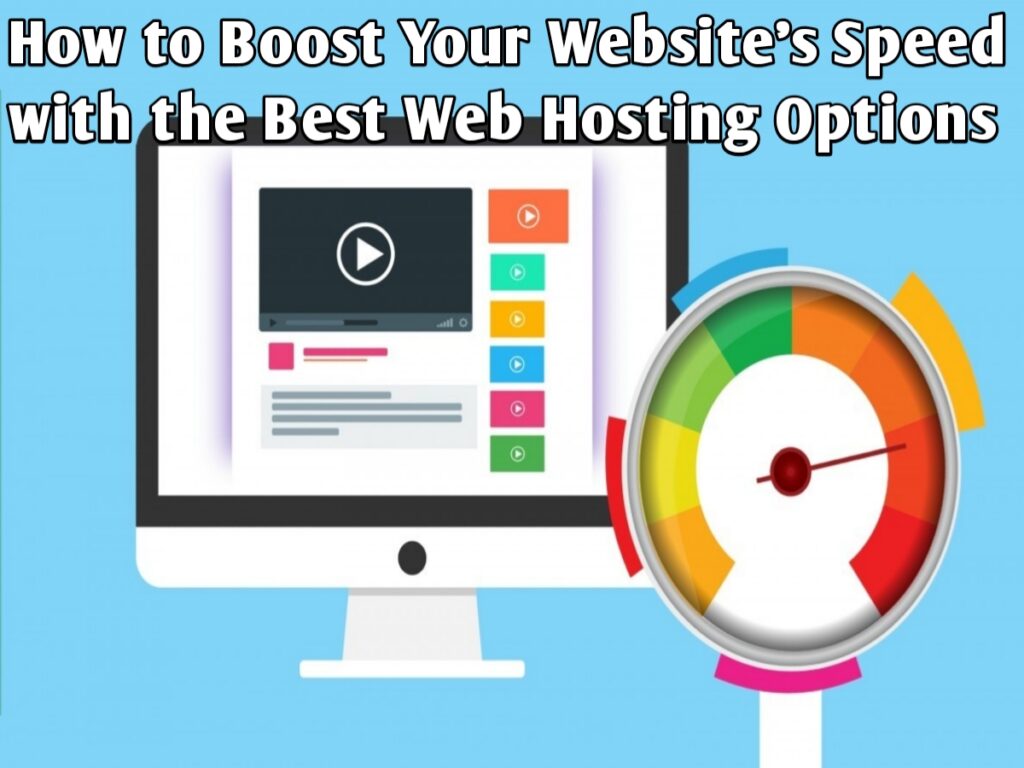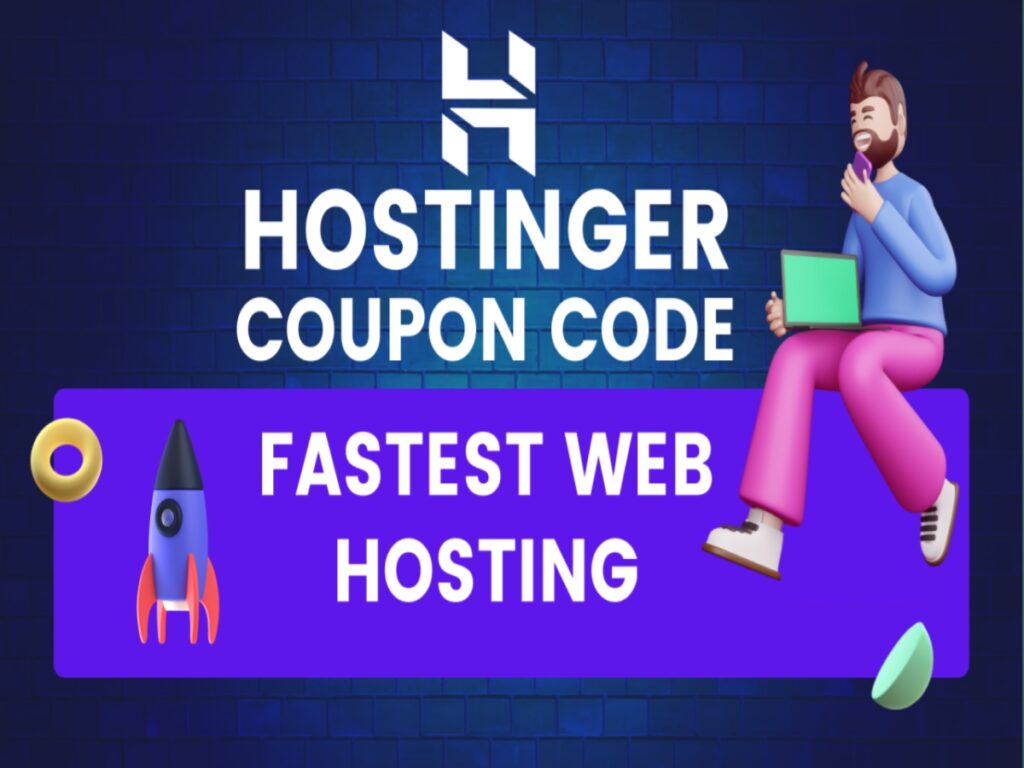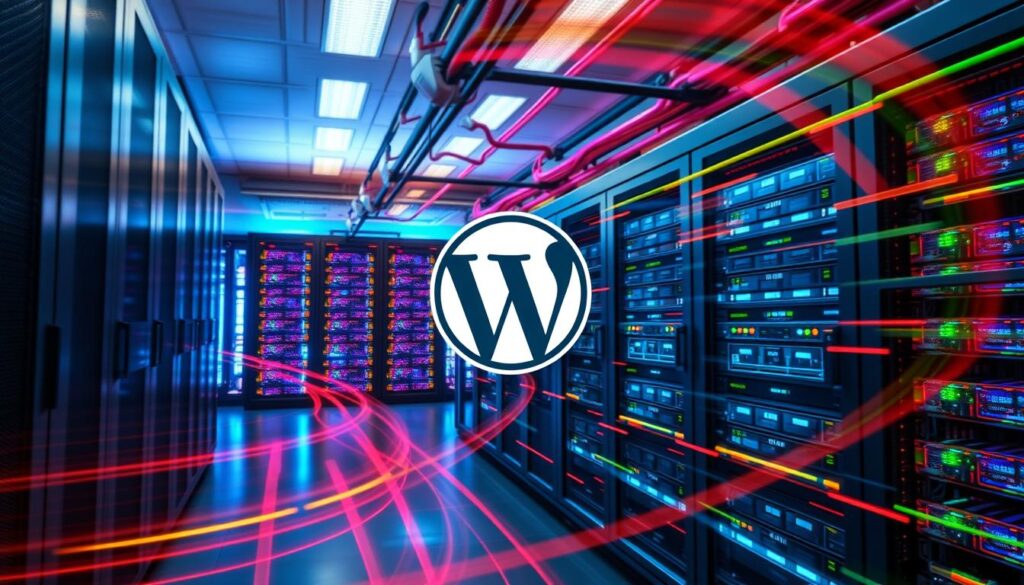In today’s digital age, a slow website is like a creaky door in a fast-food restaurant—no one wants to wait around. The speed of your website can either invite visitors to stay or send them running to your competitors. What if I told you that choosing the best web hosting option could transform your website into a speed demon? Let’s explore how you can turbocharge your website’s speed.

Understanding Best Web Hosting and Its Impact
Your choice of web hosting plays a pivotal role in determining the speed of your website. Think of web hosting as the foundation of a house. A shaky foundation affects everything above it. How does your hosting choice influence speed? Components like server location, bandwidth, and resources dictate how quickly your data reaches visitors.
According to Medium, selecting an optimized web host can uplift your revenue by improving site performance. Identifying the right type of hosting is your first step towards accelerating your site.
Table of Contents
Types of Web Hosting Explained
- Shared Hosting
Shared hosting is like apartment living. You share resources with other websites. It’s cost-effective but can lead to slow speeds during high traffic. - VPS Hosting
Virtual Private Server (VPS) hosting gives you a slice of a server. It’s more reliable than shared hosting, providing moderate performance improvement. - Dedicated Hosting
Imagine owning a house. That’s dedicated hosting. With your own server, enjoy peak performance but at a higher cost. - Cloud Hosting
Like having multiple houses on call, cloud hosting offers scalability and flexibility. It provides excellent speed by distributing resources.
Learn more from UXDesign about how different hosting impacts performance.
Isn’t Speed Just About Hosting?
While hosting plays a crucial role, it’s not the only factor. Your website’s design, images, and script usage also impact load times. Imagine driving a sports car on a mud track. No matter how fast the car, the road conditions matter. The integration of these elements with your hosting can lead to significant improvements.
For comprehensive tips, consider Cloudflare’s guide on optimizing web design factors.
Top Best Web Hosting Options for 2024
Selecting the best host is key to improving your site. Here are the leading best web hosting services of 2024, gathered from a CNET review:
- Hostinger: Known for competitive pricing and user-friendly interfaces.
- GreenGeeks: Offers eco-friendly solutions with great performance.
- Bluehost: Ideal for new websites with robust customer support.
- SiteGround: Renowned for remarkable customer service and speed.
These hosts provide the right balance between price, features, and support. If you’re interested in more options, explore PCMag‘s detailed analysis.
Tips for Optimizing Website Speed
- Optimize Images: Compress images without losing quality.
- Improve Code: Minimize CSS, JavaScript, and HTML.
- Use a CDN: A Content Delivery Network efficiently distributes content globally.
- Leverage Browser Caching: Store static pages for faster access.
Consider making these changes hand in hand with right hosting, advised by LinkedIn insights.
Conclusion: Take Control of Your Website’s Speed
Speed is your ally in attracting and retaining visitors. A fast website is like a friendly host who quickly attends to guests. Selecting the right web hosting is a strategic decision that can boost your site’s performance. Don’t stand still—your competitors won’t.
Explore a host that suits your needs, optimize your website design, and watch your site zoom past others. Now’s the time to make your website the fastest on the track!
For further reading, you can check out TechRadar for more hosting insights.
You may like these:
How to Properly Migrate Your Website to a New Hosting Provider
Frequently Asked Questions About Boosting Website Speed with the Best Hosting Options
1. How does web hosting affect my site’s speed?
Web hosting plays a crucial role in your site’s speed. A well-optimized host ensures quick loading times, handles more traffic efficiently, and maintains consistent performance.
2. What’s the best type of hosting for speed?
For speed, consider a VPS or dedicated server hosting since they offer resources solely for your site. Shared hosting can be slower due to shared resources.
3. Does a CDN help with website speed?
Yes, a Content Delivery Network (CDN) speeds up content delivery by caching it across various locations worldwide, reducing the distance data must travel.
4. How can I choose the right hosting provider?
Look for hosting providers known for uptime reliability, fast data centers, and great customer support. Consider reviews and speed tests.
5. Will upgrading my hosting plan improve speed?
Upgrading to a plan with more resources can enhance speed, especially if your current plan is hitting resource limits.
6. How can I identify if hosting is the speed bottleneck?
Use tools like Google PageSpeed Insights to analyze your site’s speed. They often point out whether hosting is the issue.
7. Is managed hosting worth it for speed?
Managed hosting can improve speed through automatic updates, optimizations, and expert support, letting you focus on content.
8. Should I consider location when choosing hosting?
Yes, hosting closer to your main audience minimizes latency and improves load times, especially for regional markets.
9. Do website builders affect hosting speed?
Yes, heavy builders can slow down loading times. Opt for lightweight builders or custom coding for speed.





Pingback: Why SSL And Unlimited Bandwidth Are Crucial For Web Hosting
Pingback: Top 5 Reasons To Choose Shared Web Hosting For Your Website